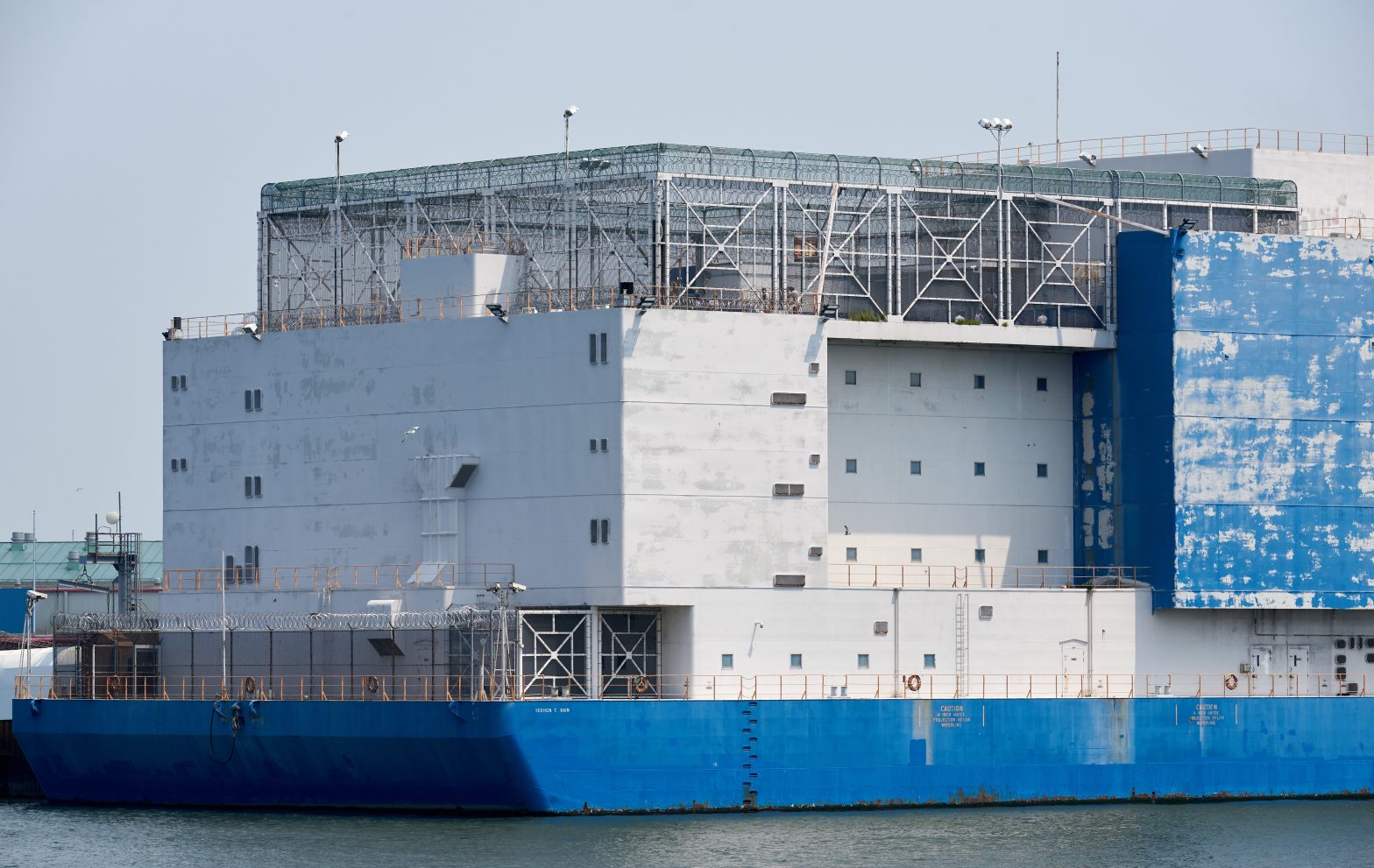After three decades, New York City’s last operating floating jail, the Vernon C. Bain Correctional Center, is closing its doors. The ship, which arrived in 1992 as a temporary solution to alleviate overcrowding on Rikers Island, is a five-story jail barge docked in the South Bronx.
By the end of this week, the 800-bed ship will be completely empty as part of a larger initiative to replace the city’s large jails with smaller ones. Most inmates will then transfer to Rikers Island. Advocates and detainees have long criticized the ship as a symbol of mass incarceration and failure in the city’s correctional system.
The Vernon C. Bain Correctional Center stands out as the last floating jail used in New York City during the late 1980s and early 1990s, including converted city ferries and former trooper ships.
While it served as a temporary measure, it faced criticism for its poor conditions, including overcrowded dormitories, suffocating heat in the summer, and minimal oversight. Additionally, the ship’s exterior was known to leak in the rain, affecting its electrical systems, as experienced by those who have spent time on board.
Maritime jails in the United States have a controversial history dating back to the Revolutionary War when Americans died by the thousands aboard British ships anchored in New York Harbor. The concept of using floating jails in the country has been sporadic and has often been met with accusations of cruelty and neglect.
In the early years of 1960, local officials touted the use of repurposed ships to house inmates, stating that the boats would project the wrong image of the city to its visitors. However, these opinions changed as the population of Rikers Island reached historic highs due to drug arrests during the crack epidemic and the city increased its reliance on these floating prisons.
While many people consider the ship’s closure to be long overdue, detractors contend that sending prisoners to Rikers is not a satisfactory solution as they will be faced with the same conditions. Detainees, primarily Black and Latino men, have been subjected to harsh conditions on the ship, which has earned comparisons to a “modern-day slave ship.”
The ship has faced a series of failures in recent years, including detainee deaths and allegations of improper care. Advocates like Darren Mack from the Freedom Agenda believe the move to Rikers does not address the systemic issues of New York City’s correctional system.
New York Department of Correction official Latima Johnson has not disclosed plans for the ship. Johnson stated in an email that the move was being made in order to centralize operations on the island, manage people in custody more efficiently, and deploy staff and resources.
Source: https://www.idahostatejournal.com/news/state/last-operating-us-prison-ship-a-grim-vestige-of-mass-incarceration-set-to-close-in/article_ecdb86ca-6c75-59da-be33-80e8fac6b8d0.html
